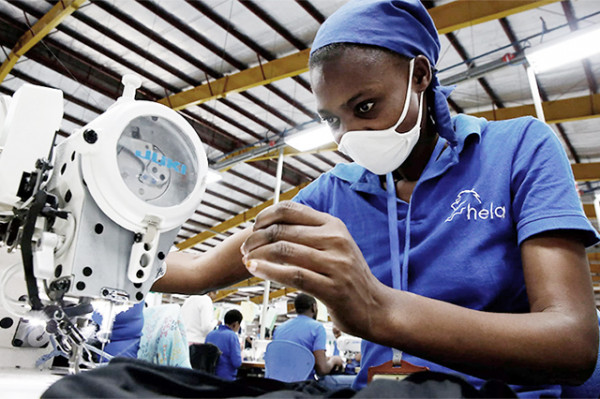By John Thiongo
NAIROBI, Kenya — The looming expiration of a key trade agreement between the United States and sub-Saharan African countries has sparked concern in Kenya’s export-driven garment industry, where roughly 16,000 jobs are at stake.
The African Growth and Opportunity Act, or AGOA, which provides duty-free access to the U.S. market for a range of African goods, is set to expire in 2025 unless renewed by Congress.
For Kenya, one of the top AGOA beneficiaries, the agreement has underpinned the rapid growth of its textile and apparel sector, particularly in export processing zones (EPZs) across Nairobi, Athi River, and Mombasa.
Industry leaders say the uncertainty around AGOA’s renewal has already begun to ripple across the sector.
“We are seeing hesitation from U.S. buyers on long-term orders,” said James Mureithi, managing director at a major garment exporting firm in Athi River.
“Without AGOA, we lose our pricing edge—and for many factories, that could mean closures.”
According to Kenya’s Ministry of Trade, the garment industry contributes nearly $500 million annually in exports, with over 90 percent destined for the American market under AGOA preferences.
The Ministry estimates that more than 85 percent of workers in EPZ garment factories are women, most of whom support extended families.
Washington has signaled general bipartisan support for renewing AGOA, but political delays and shifting U.S. trade priorities have raised doubts over the timeline—and terms—of any extension.
Kenya has also been in negotiations with the U.S. on a separate bilateral trade deal, but officials say it is not a substitute for AGOA’s broad benefits.
“We welcome a free trade agreement,” said Cabinet Secretary for Trade Rebecca Miano, “but our immediate concern is safeguarding AGOA. Thousands of livelihoods depend on it.”
The anxiety comes at a time of broader economic strain in Kenya, where inflation, youth unemployment, and a weakening shilling have increased political pressure on the Ruto administration.
Workers in the EPZs say they are worried but not giving up hope.
“This job feeds my children and pays my rent,” said Alice Mwikali, 31, who works as a quality checker at a factory in Machakos. “We pray AGOA is renewed—because if it goes, so do we.”





